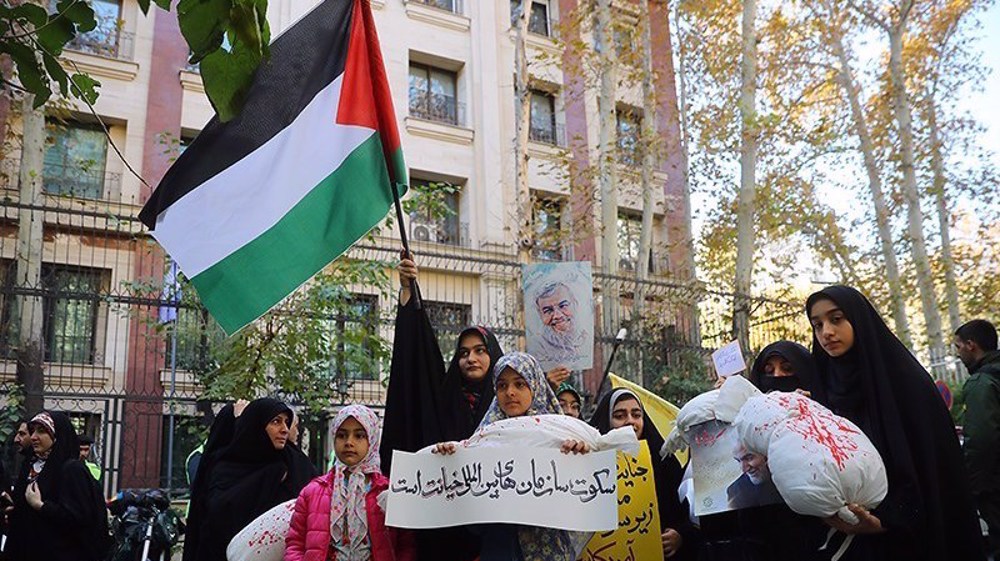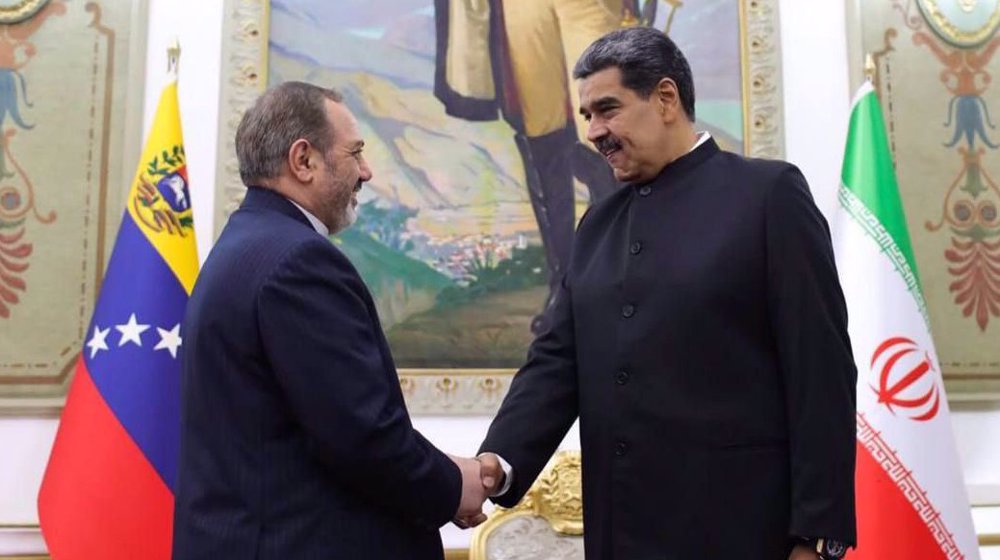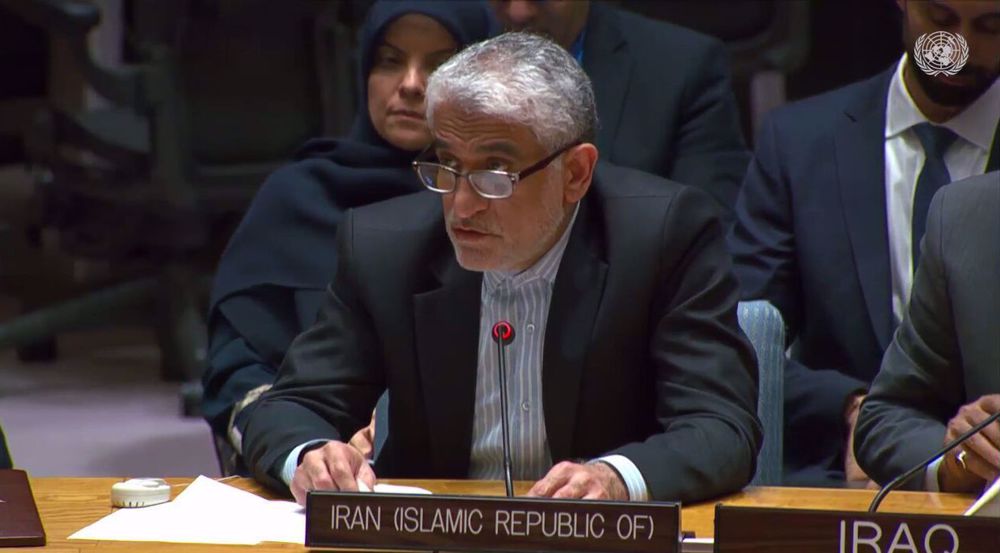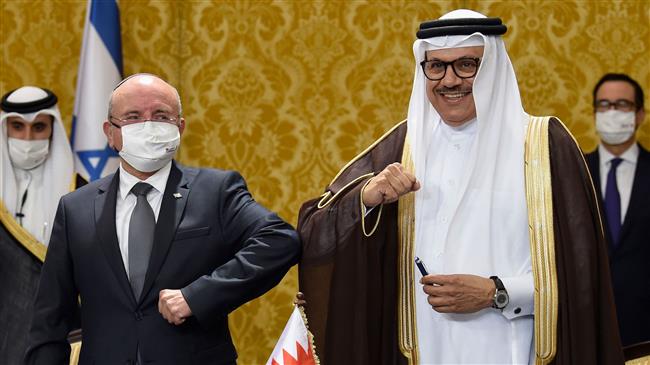Leaked documents show details of failed Arab-American bid to form anti-Iran coalition
A Lebanese newspaper has published top-secret documents outlining details of a failed plan by former US president Donald Trump and certain Arab countries in the region, particularly Saudi Arabia, to form a large regional coalition against Iran.
According to al-Akhbar newspaper, the documents show that Trump began to lure its allies in the Middle East into forming an anti-Iran front months after his first foreign trip to Riyadh as the president of the United States.
Trump’s plan, under the names “the Middle East Strategic Alliance (MESA)” and the “Arab NATO”, was accompanied by his milking of the Arab countries while going on with implementing the so-called maximum pressure policy against Iran, the report said.
The report also revealed that Saudi Arabia was very enthusiastic about and had faith in Trump’s strategy and put all its eggs in his basket while raising its hopes to unrealistic levels.
According to a confidential Saudi document dated July 4, 2019, the US demanded that all parties must “accelerate arms deals” with the United States, the Lebanese paper reported, hinting at Trump’s famous phrase that “they need to pay” for Washington’s support.
It added that the document exempts the US from taking “any military action” in the event of attacks against those countries, making the Saudis realize that such deals give “important benefits to the US” without imposing any burdens on it, while giving “very limited benefits to other countries, including the Kingdom.”
Al-Akhbar argued that Saudi Arabia, the United Arab Emirates and Bahrain’s insistence on the necessity of confronting Iran and its “regional wings” as the main focus of the alliance shows that they were skeptical about the intentions of the US for the creation of the so-called Arab NATO.
According to the leaked documents, minutes of a coordination meeting between the Persian Gulf states at the headquarters of the Saudi military attaché in Washington show that the Saudis were concerned about a lack of commitment on the American side and also about the fact that it did not offer any benefits to the member states.
“We want the coalition to be limited to the military-security aspect only, and to include sources of threats, in addition to the possibility of establishing strategic partnerships with other allied countries,” the head of the Saudi delegation said at the meeting.
At that meeting, Bahrain wanted the US to be more severe with regard to confronting “Iranian threats,” while worrying that Washington might not remain committed to the alliance.
“After the first proposal submitted by the White House clearly referred to confronting Iranian threats, the second proposal that came from the US Defense and State Ministries was less severe,” the head of the Bahrain delegation regretted, adding, “We want to obtain guarantees that the United States will not abandon this alliance as it did by withdrawing from the nuclear agreement with Iran.”
Citing the leaked documents, al-Akhbar said the main objective of the United States’ proposal was said to be “building institutions to create power against the Iranian aggression, terrorism and extremism, and promoting economic growth and diversity.”
The report came more than a week after Saudi Arabia’s de-facto ruler, Crown Prince Mohammed bin Salman (MBS), said he is seeking to have “good relations” with Iran while pointing to some differences in the path toward rapprochement.
“Iran is a neighboring state, we are seeking to have good relations with Iran, we have interests in Iran,” Bin Salman said in an interview broadcast on Saudi state TV on April 27.
“We are working with our partners in the region to overcome our differences with Iran especially with its support for militias and the development of its nuclear program,” he added.
Tehran has reacted positively to the recent “change in Saudi Arabia’s tone” towards the Islamic Republic and welcomed bilateral efforts to secure regional peace and stability.
However, observers have already voiced skepticism about MBS’s outreach, telling Press TV that his failed war on Yemen and Trump’s departure from the White House are among the reasons behind his change of tone toward Tehran.
The leaked documents confirmed that Riyadh changed its Iran policy on the surface, partly as a result of a change in the balance of power in the Middle East in the aftermath of Trump’s defeat in the 2020 election.
According to Al-Akhbar, disagreements among the member states caused the project – like its creator Donald Trump – not to last long, prompting Riyadh to shift its policies after Joe Biden became president.
The apparent shift in Saudi Arabia’s policies does not mean the Kingdom is abandoning its “existential goals”, it added.
VIDEO | ICC's arrest warrant for Netanyahu to worry Western politicians: Former British diplomat
Iranians protest against Israel after Netanyahu ICC warrant
Germany undecided on complying with ICC arrest warrants for Israeli war criminals
VIDEO | Former FBI agent criticizes US Congress for 'outright corruption'
IRGC chief urges Muslim countries to cut aid routes to Israel
'New chapter in cooperation': Iran, Venezuela sign new MoUs
Jordan sentences former lawmaker for supporting Palestinian resistance
Basij volunteer forces hold massive drills in southwestern Iran















 This makes it easy to access the Press TV website
This makes it easy to access the Press TV website